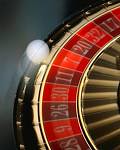Maximum Security
A brawl came at the end of a tight contest during the round-robin portion of the tournament. Technically, it wasn't a fight, since the players all had their helmets on (Rule 613 specifically addresses Fisticuffs). In my book, throwing punches makes it a fight. By either definition, I don't like it.
At the Civic Center, home of the Otters, security was called to the ice by game officials as the horn sounded to close the third period. The referees pulled players apart then met at center ice to confer over the new penalties that were about to be assessed. That was ironic since they had neglected to call many penalties during the previous 45 minutes of play. All the while, two security staff stood on the ice, each with his arms folded across his chest and looked around sternly.
The skating was hard, the shots many. As the game progressed, play intensified between our players and their GTA opponents. The score was even at 1 apiece. Emotions were high. With few infractions being called, the players stretched the limits further. They wanted to know how far they could go before the refs made the call.
Girls minor hockey allows contact, but does not allow body-checking. A check from behind went unpenalized late in the third period. That was the breaking point. The final minutes played out with a series of face-offs, hacks at the goalie, pushing and shoving and lots of yelling from one bench. Game officials don't have to tolerate it and finally assessed that coach a penalty for unsportsmanlike conduct.
Eventually, the teams were escorted to their dressing rooms. Security and the refs kept the teams apart. The fans were warned that "nuisance in the lobby will be dealt with seriously." The fans were in-check. There was that one fan who kept shouting a$$ho1e to either the refs or her coaches, we couldn't tell. She wasn't in the stands or the lobby, anyway.
The USA Hockey Referee Manual points out that the role of an on-ice official includes to provide a safe and sportsmanlike environment in which players can properly display their hockey skills. It adds, that referees must control games to the extent that is necessary to provide a positive and safe experience for all participants. There's a time to let them play; and a time to use the whistle. The refs have to call the penalties before someone gets hurt.
There's a time to let them play; and a time to use the whistle. The refs have to call the penalties before someone gets hurt.
Security stuck around until the players had changed into street clothes then cleared the tunnel so the team could make its way to the bus without further incident.
Read about Erie Tournament















0 comments:
Post a Comment